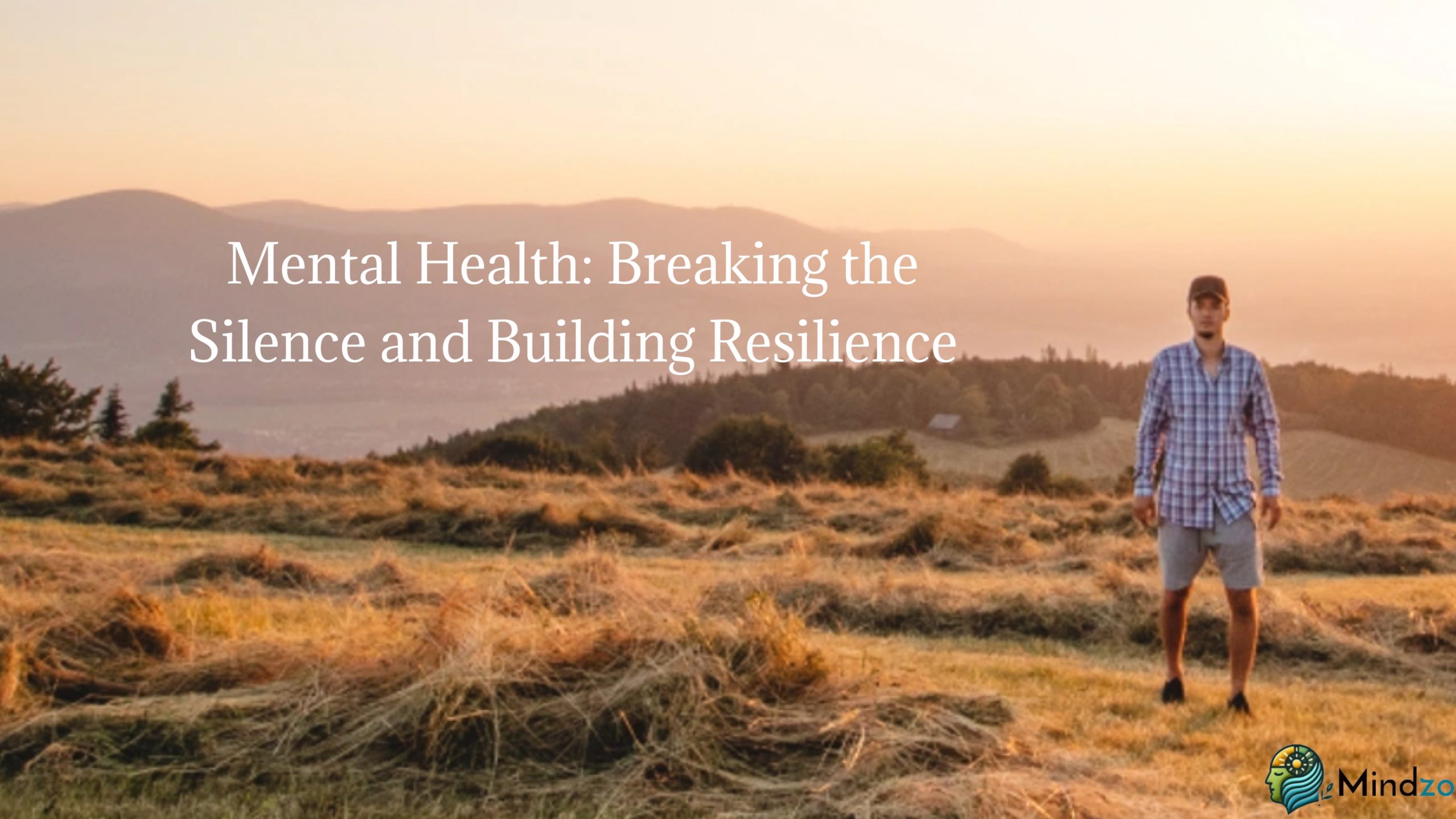Mental Health: Breaking the Silence and Building Resilience

Mental health is more than the absence of mental illness; it’s the foundation for how we think, feel, and behave in everyday life. Just like physical health allows us to run, work, and engage with the world, mental health gives us the capacity to handle stress, build relationships, and find meaning in our experiences.
Yet, despite its importance, mental health remains one of the most misunderstood and stigmatized aspects of human well-being. Many people silently carry emotional burdens because they fear judgment or dismissal. Others confuse mental health challenges with personal weakness, which only deepens isolation.
The reality is simple: everyone has mental health, just as everyone has physical health. Sometimes it flourishes, and sometimes it falters. The more we acknowledge this, the easier it becomes to build resilience, seek help, and support one another.
What Does Mental Health Really Mean?
When people hear the term “mental health,” they often think only of disorders such as depression, anxiety, or bipolar disorder. But mental health is broader; it encompasses emotional stability, cognitive clarity, social well-being, and resilience.
Key aspects of mental health include:
- Emotional health: The ability to recognize, express, and regulate feelings.
- Cognitive health: Clear thinking, decision-making, and problem-solving.
- Social health: Building and maintaining supportive relationships.
- Resilience: The ability to recover after setbacks and adapt to challenges.
Good mental health doesn’t mean being happy all the time. It means being able to manage stress, handle emotions, and stay grounded when life becomes difficult.
The Rising Mental Health Challenges
Mental health struggles are increasingly common across all age groups. According to the World Health Organization (WHO), one in four people will face a mental health issue at some point in their lives. While awareness has grown, so have stressors that trigger these conditions.
Some of the most common challenges include:
- Anxiety Disorders
Generalized anxiety disorder, panic attacks, and social anxiety are widespread, often fueled by constant uncertainty in modern life. - Depression
More than sadness it’s a persistent state of emptiness, loss of interest, and low energy. - Post-Traumatic Stress Disorder (PTSD)
Recurring flashbacks, nightmares, and heightened alertness after traumatic events. - Bipolar Disorder
Marked by cycles of depression and mania, deeply impacting relationships and stability. - Eating Disorders
Conditions like anorexia, bulimia, and binge-eating tied to body image and self-esteem. - Substance Use Disorders
Alcohol or drugs used as coping mechanisms that can spiral into dependence.
Why Modern Life Intensifies the Struggle
- Workplace stress and burnout: Long hours, blurred boundaries, and job insecurity.
- Financial pressure: Rising costs create chronic stress for families and individuals.
- Technology overload: Constant notifications, comparisons, and negativity online.
- Global uncertainty: Pandemics, conflicts, and climate concerns add layers of fear.
The Weight of Stigma
Despite growing awareness, stigma remains one of the largest barriers to treatment. People fear being labeled “weak” or “unstable,” so they suffer in silence. Stigma doesn’t just prevent conversations, it prevents healing.
By treating mental health as a normal part of life, society can encourage people to seek help without fear of judgment.
How Mental Health Affects Daily Life
Poor mental health affects every corner of life:
- Work performance: Difficulty focusing, frequent absences, burnout.
- Relationships: Withdrawal, irritability, or disconnection.
- Physical health: Stress-related illnesses like high blood pressure or insomnia.
- Decision-making: Risk-taking or avoidance of responsibilities.
Warning Signs to Watch For
- Persistent sadness or hopelessness.
- Withdrawal from social activities.
- Sudden mood swings.
- Difficulty concentrating.
- Changes in sleep or appetite.
- Reliance on alcohol or drugs.
- Thoughts of self-harm or suicide.
If these symptoms persist, professional help is necessary.
Practical Strategies for Better Mental Health
- Prioritize Self-Care – Exercise, sleep, and nutrition for balance.
- Practice Mindfulness – Meditation, journaling, breathing techniques.
- Stay Connected – Maintain relationships and support networks.
- Set Boundaries – Say no to overcommitment, prevent burnout.
- Seek Professional Help – Therapy, counseling, or support groups.
- Reduce Negative Inputs – Limit toxic environments and media overload.
Building Resilience
Resilience means adapting and recovering from difficulties.
Ways to build resilience:
- Gratitude journaling.
- Reframing setbacks as lessons.
- Problem-solving skills.
- Staying flexible.
- Asking for help when needed.
The Role of Community and Policy
- Workplaces: Wellness programs and flexible schedules.
- Schools: Early mental health education.
- Governments: Affordable therapy, hotlines, and awareness campaigns.
When communities prioritize mental health, everyone benefits.
A Call to Compassion
Mental health shapes how we live, love, and work. Silence and stigma should never be barriers to healing. By fostering open conversations, seeking support, and building resilience, we create a world where no one suffers alone.
Breaking the silence is an act of compassion and the first step toward a society rooted in resilience, empathy, and hope.
Reference:
https://www.who.int/health-topics/mental-health
https://www.nimh.nih.gov/health
https://www.mentalhealth.org.uk/explore-mental-health/a-z-topics/mental-health
https://www.verywellmind.com/the-importance-of-mental-health-for-wellbeing-5207938
-
 Beyond Words: The Emotional Medicine of a Simple HugOctober 27, 2025
Beyond Words: The Emotional Medicine of a Simple HugOctober 27, 2025 -
 Music’s Unique Therapeutic BenefitsOctober 23, 2025
Music’s Unique Therapeutic BenefitsOctober 23, 2025

Leave a Reply